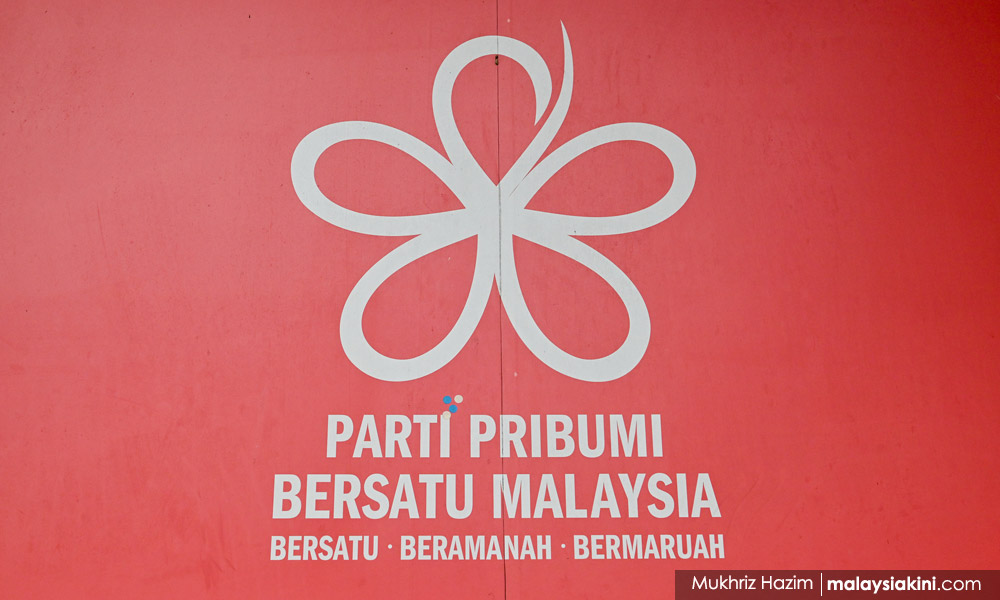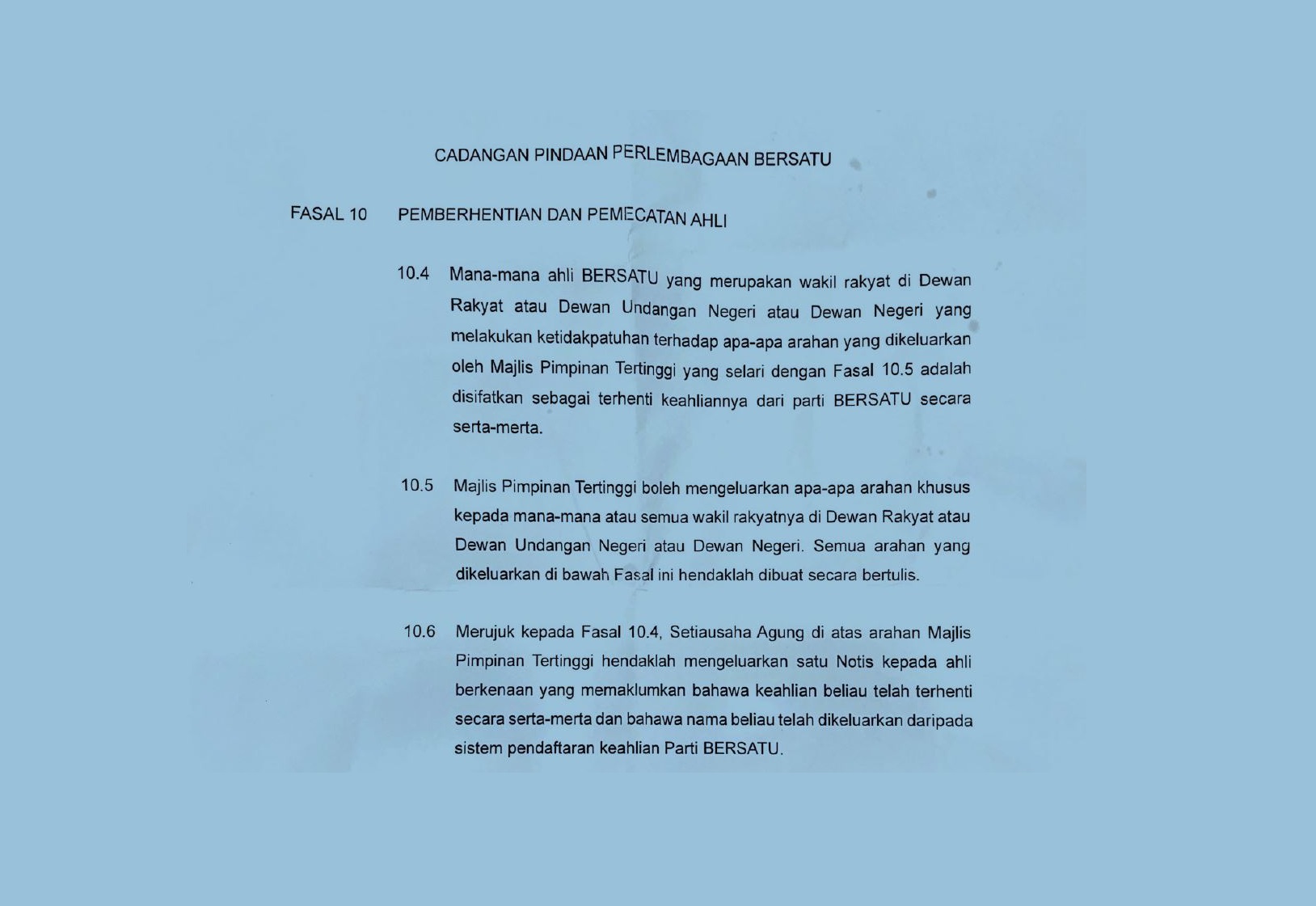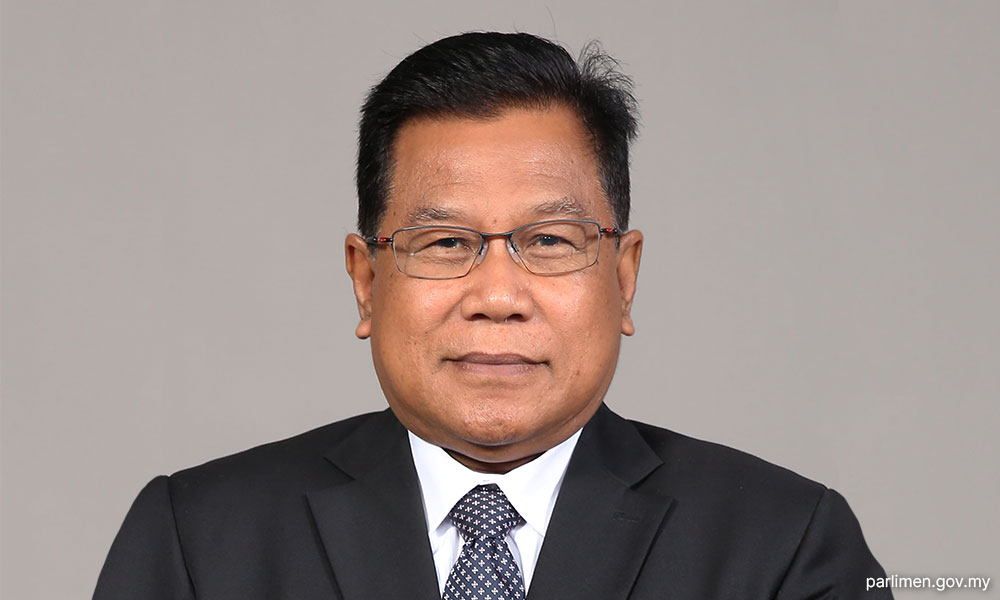Gua Musang MP Azizi Abu Naim tried to blame the Bersatu 7’s failure to retract their pledge for Pakatan Harapan-led governments on their former party’s no-reply to their queries.
This lame excuse would not overturn their loss of Bersatu membership. However, one technicality would save Azizi’s Gua Musang parliamentary seat and Nenggiri state seat, and likewise, Zahari Kechik’s Jeli parliamentary seat.
The technicality is that they were elected on PAS’ ticket, not Perikatan Nasional’s.
This column attempts to explain three things.
First, why should parliamentary speaker Johari Abdul and Selangor speaker Lau Weng San should inform the Election Commission (EC) of the five vacancies within 21 days?
Second, why can Azizi (above) and Zahari get away from Article 49A, popularly known as the Anti-Hopping Law (AHL)?
Third, why the AHL is not a failure as claimed and what we really need to deter party hopping.
Five by-elections, clear as daylight
The key to understanding why the five by-elections in Perak, Selangor, and Labuan have to happen lies in Article 49A of the Federal Constitution, the corresponding provisions in the Selangor state constitution, and Fasal 10.4 of Bersatu’s party constitution, which were both new additions.
Article 49A (1) stipulates that “A member of the House of Representatives shall cease to be a member of that House and his seat shall become vacant… if (a) having been elected to the House of Representative as a member of a political party (i) he resigns as a member of the political party; or (ii) he ceases to be a member of the political party”.
Further, Article 49A (2) stipulates that “A member of the House of Representatives shall not cease to be a member of that House pursuant to this Article only by reason of… (c) his expulsion of his membership of his political party”.
Reading together, it means simply that if MPs voluntarily leave their parties or cause their party memberships to end, then their seats would be vacated. On the other hand, if they are sacked by party leadership, their seats would stay intact.

This is to protect MPs from unfair sacking by their party’s leadership. Ironically, this was demanded in cross-party negotiation by Bersatu, whose president Muhyiddin Yassin was unjustly expelled from Umno by party president Najib Abdul Razak for questioning him on the 1MDB scandal.
This is considered a “loophole” by those who want a strong AHL that would allow party leadership to control lawmakers and purge the disobedient from the legislature.
To close this “loophole”, parties amended their party constitution to make disobedience an act that will terminate their membership automatically, like not paying party membership dues.
This trend was started by DAP and Amanah before the 15th general election, emulated by Umno after GE15, and by Bersatu after six MPs pledged their allegiance to Prime Minister Anwar Ibrahim. The strictness of these provisions differs by party.
Bersatu’s version, Fasal 10.4, stipulates that “Mana-mana ahli Bersatu yang merupakan wakil rakyat di Dewan Rakyat atau Dewan Undangan Negeri atau Dewan Negeri yang melakukan ketidakpatuhan terhadap apa-apa arahan yang dikeluarkan oleh Majlis Pimpinan Tertinggi yang selari dengan Fasal 10.5 [apa-apa arahan khusus] adalah disifatkan sebagai terhenti keahliannya dari parti Bersatu secara serta-merta.”

What is the fundamental difference between “[ceasing] to be a member” in Article 49A(1) and “expulsion” in Article 49A(2)?
No discretion and hence no negotiation in the former. In other words, termination of membership is automatic, like an electric shock if you put your wet finger into an electric socket.
The Bersatu leadership amended their party constitution with the clear intention to punish the then-Bersatu 6.
They did it right in their letters on May 17 to the seven rogue lawmakers, demanding them to write to the respective speakers within 14 days to withdraw their allegiance to Harapan. This is not the show-cause letter that Azizi and the gang imply it to be. It is an instruction for obedience.
After May 31, all seven Bersatu lawmakers lost their membership for not acting as per instructions. There is no case for this automatic termination of membership to be overturned in court.
Consequently, four MPs, Syed Abu Hussin Hafiz Syed Abdul Fasal (Bukit Gantang), Iskandar Dzulkarnain Abdul Khalid (Kuala Kangsar), Suhaili Abdul Rahman (Labuan), and Zulkafperi Hanapi (Tanjong Karang), and one state assemblyperson, Abdul Rashid Asari (Selat Klang), would also lose their legislative seats.
As they were “elected as members of” PN, which ends when they lose their Bersatu membership, Article 49A(1) applies as clear as daylight.
While some media practitioners have doubts, I have full confidence in the political wisdom and integrity of both the Dewan Rakyat and Selangor legislative assembly speakers that they would duly inform the EC of these five vacancies, and five by-elections can be expected in late July or August.
Jeli and Gua Musang not vacated
This is not the same for Azizi and Zahari because they were members of Bersatu but were elected as representatives of PAS.
All Bersatu candidates in Kelantan and Terengganu did the same in GE15 and the 2023 state elections.

Because the duo were not elected as members of PN, Bersatu cannot cause them to lose legislative seats by having their Bersatu membership automatically terminated.
Unless they secretly signed up for PAS membership, which allows PAS to amend its constitution and force similar vacancies of their seats, both politicians are free from the application of Article 49(1) for the whole term of the 15th Parliament and 15th Kelantan state legislative assembly.
They can freely join and leave any party without consequences to their seats.
Is the AHL a failure?
One expected response from politicians and members of the public is that the AHL is a failure.
No, it is not a failure. Allow me to separate the issues: first, “technical loopholes” like in this case and the two episodes in Sabah; second, the inherent problems with AHL.
The technical loopholes happen because proponents of AHL overlook two unique features of Malaysian electoral politics which may not exist in other countries with AHLs: first, candidates may be nominated by their party or more often, their coalition; second, parties sometimes lend their logo to non-members, normally politicians from allied parties.
The escape of Gua Musang and Jeli is due to the latter. The former has allowed four Sabah MPs to quit Bersatu without losing their parliamentary seats because they were elected as members of Gabungan Rakyat Sabah (GRS) – an undisputable fact – and they claimed to be direct members of GRS – which we knew only after their defection.
These two technical issues can be fixed even without amending Article 49A. After the GRS 4, parties and coalitions would be very careful of overlapping membership of candidates. After the Bersatu 2 in Kelantan, the practice of lending party logos to non-members would likely end.
The larger problem lies with the AHL. It is hard if not impossible to strike the right balance between avoiding two perils: rogue MPs who destabilise multiparty democracy, or powerful party leaders who can make Parliament a rubber stamp.
The AHL has largely stopped the first peril, hence it is not a failure.
With all the sweeping anti-hopping provisions in party constitutions, the second peril would come back to haunt us at some points. Even when that happens, it is still not a failure. Calling it a failure implies that with a better-designed law, the dilemma is avoidable. It is not.
What we need is not about eliminating the symptom of party hopping, which can be healthy in certain circumstances, but about curing the disease – programmatically weak, patronage-based parties that can easily be turned upside down by party-hopping. - Mkini
WONG CHIN HUAT is a political scientist at Sunway University and a member of Project Stability and Accountability for Malaysia (Projek Sama). He believes politicians can be men’s and women’s best friends given the right House training.
The views expressed here are those of the author/contributor and do not necessarily represent the views of MMKtT.



No comments:
Post a Comment
Note: Only a member of this blog may post a comment.